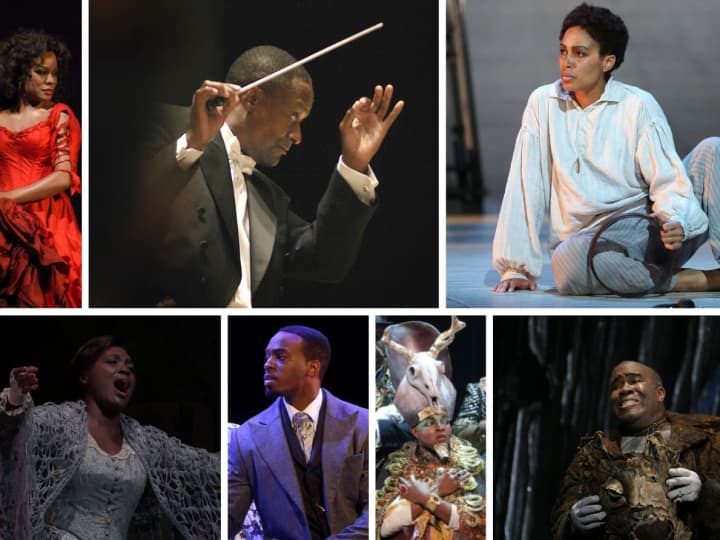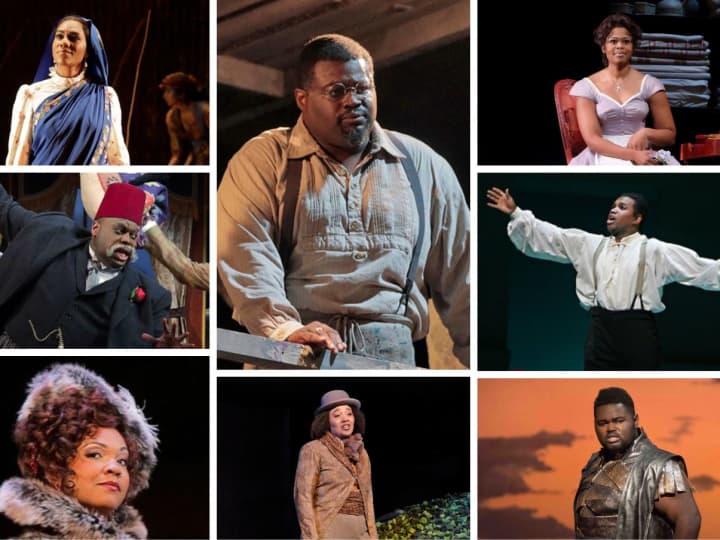February is the month of many things; scrambling to find a decent gift for your significant other for Valentine's Day, praising the heavens for that three-day weekend for Presidents' Day and — of course — Black History Month. From Jesse Owens' historic achievements at the 1936 Summer Olympics to Bessie Coleman's accomplishment of becoming the first Black female pilot in 1922 — achievements by Black individuals throughout American history are abundant.
But what about the opera world? We've rounded up six (although there are plenty more!) opera singers who changed the landscape of the art!
Camilla Williams
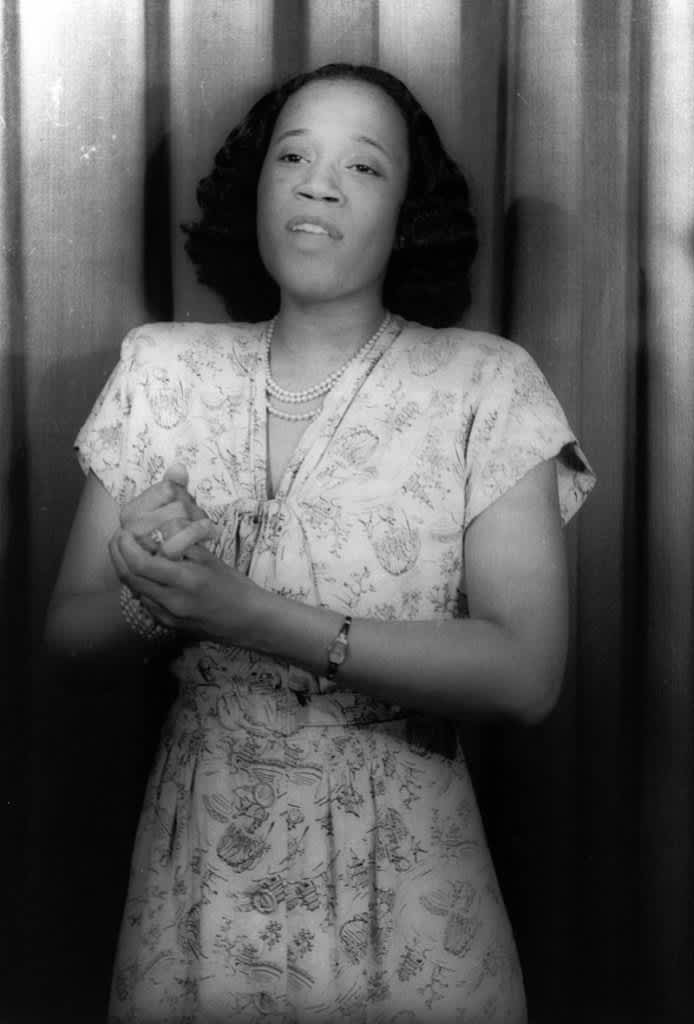
Camilla Williams was an American soprano who regularly performed around the world. She was the first African-American to receive a regular contract with a major American opera company — the New York City Opera — as well as the first African-American to sing a major role with the Vienna State Opera. As a soloist, Williams toured throughout the United States, as well as in Asia and Australia. After retiring from opera, she was the first African-American appointed as Professor of Voice at Indiana University. Williams died in 2012 leaving behind a decorated legacy.
Learn more about Camilla Williams here.
Simon Estes
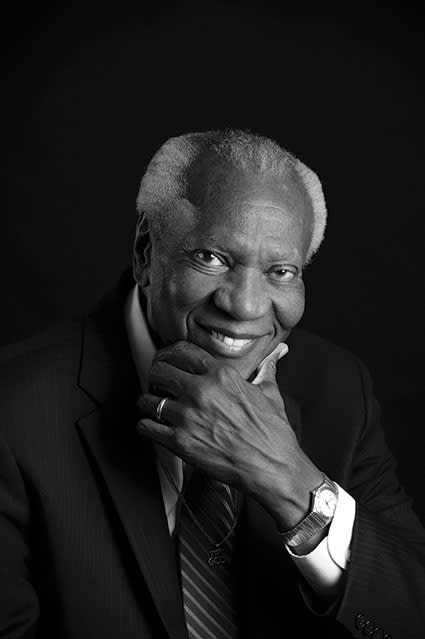
Born in 1938, Estes began his operatic career as a bass-baritone in the 1960s, singing at numerous opera houses around the world and for various political figures and presidents — including Bill Clinton, Desmond Tutu, and Nelson Mandela. During the 1960 and 70s, Estes performed at prestigious European opera houses: La Scala, Hamburg State Opera, and Vienna State Opera to name a few. In 1978, Estes became the first Black male to sing a leading role at the Bayreuth Festival when he sang the title role in Wagner's The Flying Dutchman. At 79, Estes is currently a visiting Professor of Music at the Des Moines Area Community College (DMACC) Ankeny Campus.
Learn more about Simon Estes here.
Leontyne Price
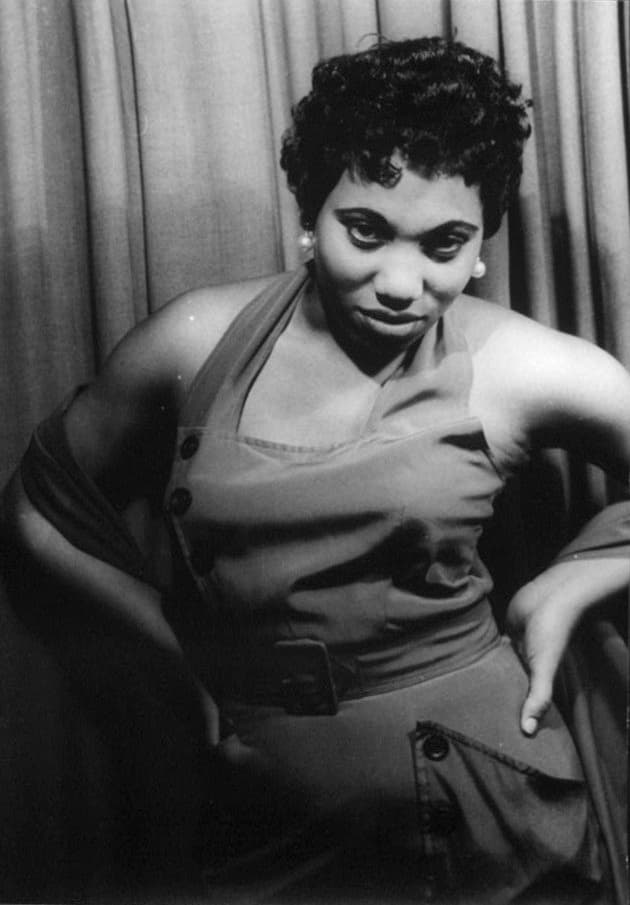
Perhaps no American opera singer in history, regardless of race, has achieved as much universal respect as soprano Leontyne Price. Born in Laurel, Miss. in 1927, Price's career began as a student at The Juilliard School, where her performance as Alice Ford in Verdi's Falstaff in 1952 garnered her early acclaim. She is best known for her operatic interpretations of operas by Giuseppe Verdi and Giacomo Puccini, not to mention her proclivity for new works from composers such as Samuel Barber. In 1966, Price sang at the inaugural performance at the new Metropolitan Opera house at Lincoln Center, starring as Cleopatra in the world premiere of Barber's Antony and Cleopatra. She would eventually sing 201 performances at the Met in 16 productions, and has also been honored with the Presidential Medal of Freedom, the Kennedy Center Honor, the National Medal of Arts and many more. Price recently celebrated her 91st birthday and can be seen in Susan Froemke's 2017 documentary The Opera House.
Learn more about Leontyne Price and her first performance at Lincoln Center here.
George Shirley
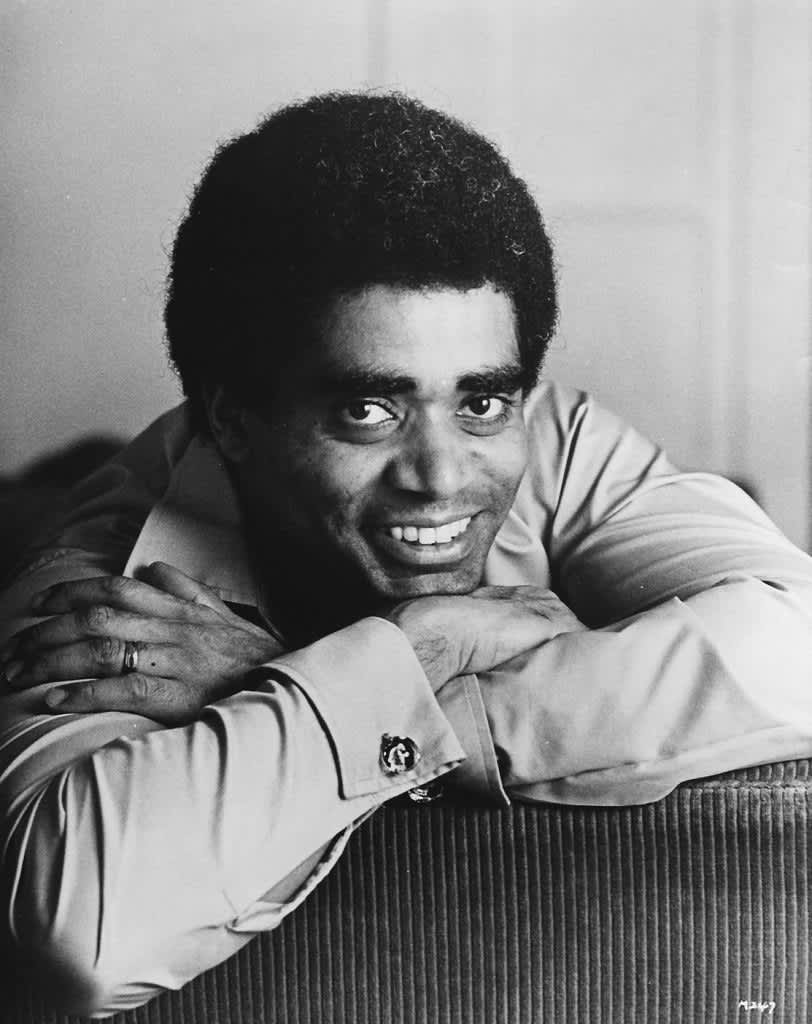
Detroit native George Shirley paved the way for many young African-American tenors in the industry, and not just on the operatic stage — in 1955, he became the first African-American to serve as a high school music teacher in Detroit. In addition, he was the first Black singer to win the Metropolitan Opera National Council Auditions in 1961, and well as the first African-American tenor to sing a leading role at the Met when he made his debut there as Ferrando in Così fan tutte later that year. Shirley would go on to sing 28 roles in 26 operas during his 11 seasons at the Met, and he eventually joined the voice faculty at University of Maryland. He then assumed the position as Director of Vocal Arts at University of Michigan. In 2015, he was presented a National Medal of the Arts from then-President of the United States Barack Obama.
Learn more about George Shirley here.
Marian Anderson
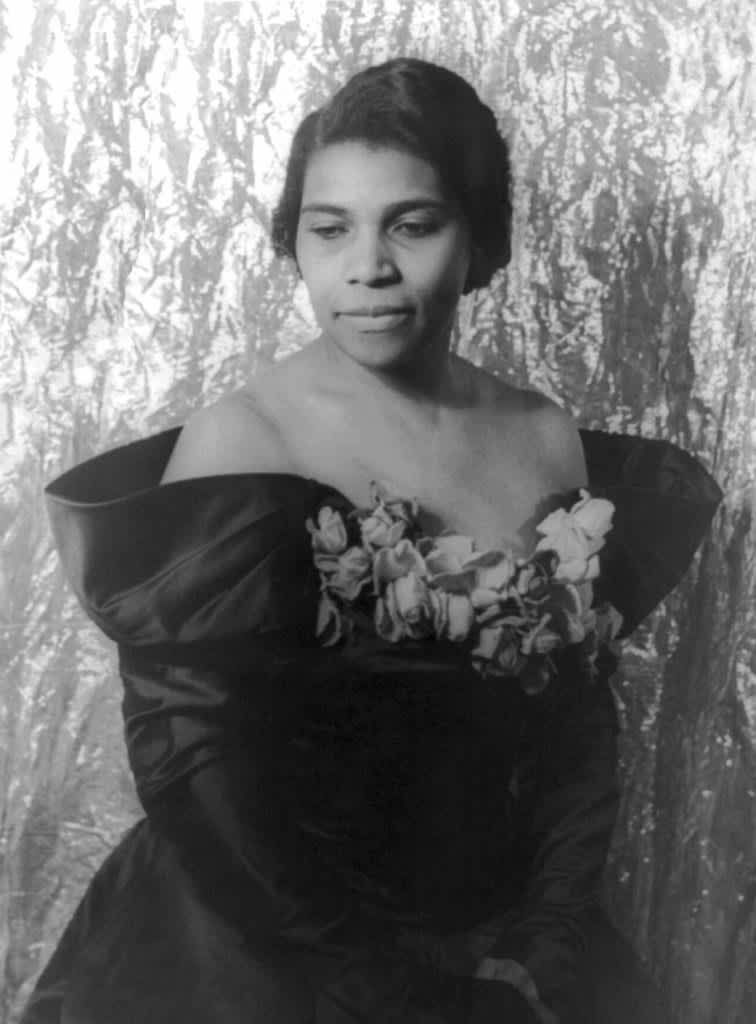
Marian Anderson is, undoubtedly, one of the most celebrated classical singers in the 20th century. A beautiful contralto (there aren't nearly enough in the world!), Anderson preferred to sing in concert and recital, but made one groundbreaking operatic appearance at the Metropolitan Opera in 1955, as Ulrica in Verdi's Un Ballo in Maschera, when she became the Met's first Black soloist. Her most iconic performance came even earlier, however. After the Daughters of the American Revolution refused to let Anderson sing at Constitution Hall in Washington, D.C., First Lady Eleanor Roosevelt and President Franklin D. Roosevelt aided in making arrangements for Anderson to perform in a critically acclaimed open-air concert on Easter Sunday, April 9, 1939, on the steps of the Lincoln Memorial. Anderson died at 96 in 1993.
Learn more about Marian Anderson here.
Grace Bumbry
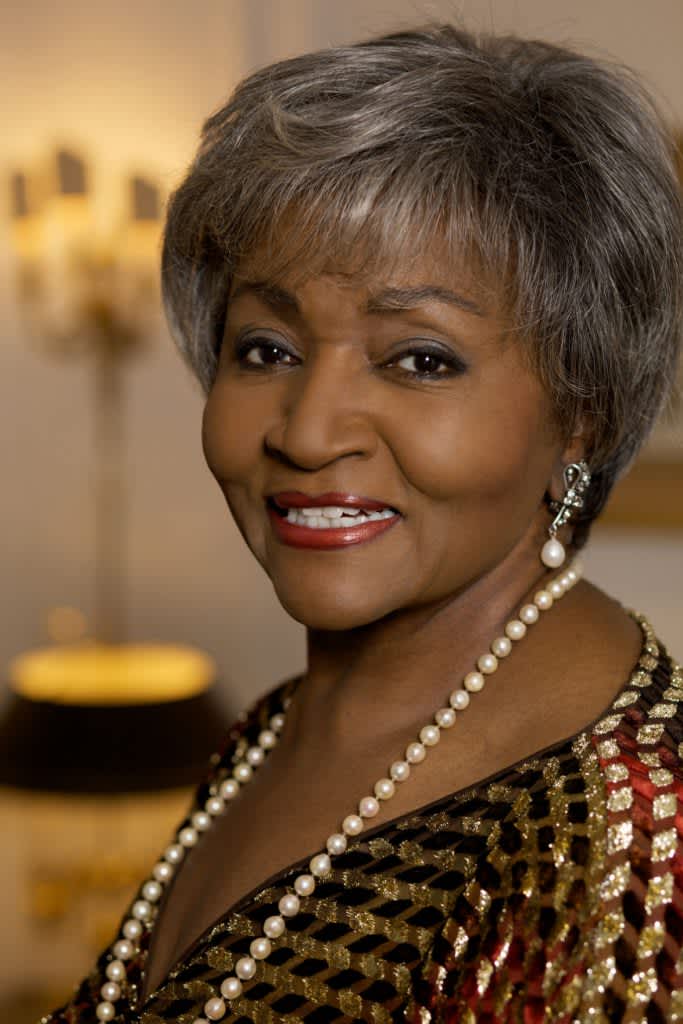
Mezzo-soprano Grace Bumbry was known for her fiery passion and dramatic performances on the stage. With a career spanning over 60 years, Bumbry was part of the pioneering generation of Black opera singers that followed Marian Anderson, paving the road for later classical musicians and opera singers. With her mastery of the bel canto technique, Bumbry is one of the more successful singers who made the difficult transition from mezzo-soprano to high soprano. She has performed at such opera houses at Royal Opera House, La Scala, Met Opera, Basel Opera, and Philadelphia Lyric Opera Company among many (many, many, many) others. Bumbry even sang at LA Opera, performing the role of Lady Macbeth in Verdi's Macbeth in 1987. On Dec. 6, 2009, she was among those honored with the 2009 Kennedy Center Honors, for her many contributions to the performing arts. Bumbry is currently 81.
Learn more about Grace Bumbry here.
Bonus! Conductor Henry Lewis
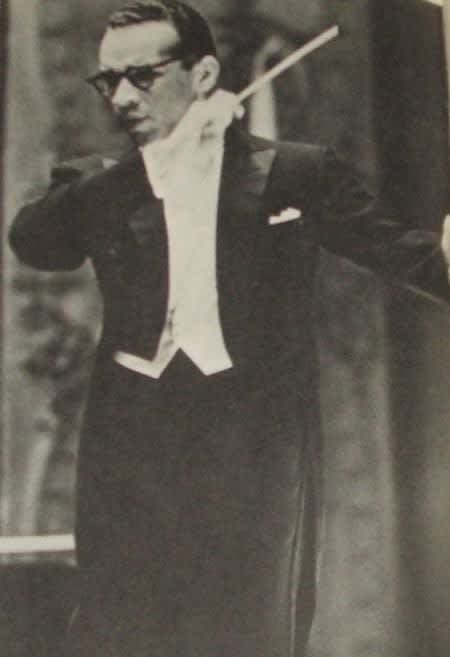
Henry Lewis may not be an opera singer, but he was vital in the development of classical music here in Los Angeles. Joining the Los Angeles Philharmonic at the age of 16, Lewis was the first African-American instrumentalist in a major symphony orchestra. In 1968, Lewis founded the Los Angeles Chamber Orchestra and toured as a guest conductor in all of the major opera houses, where he often conducted performances starring his wife, the sensational mezzo-soprano Marilyn Horne. Through it all, he remained a true local boy, living for many years in Echo Park before his death in 1996.
Learn more about Henry Lewis here.

